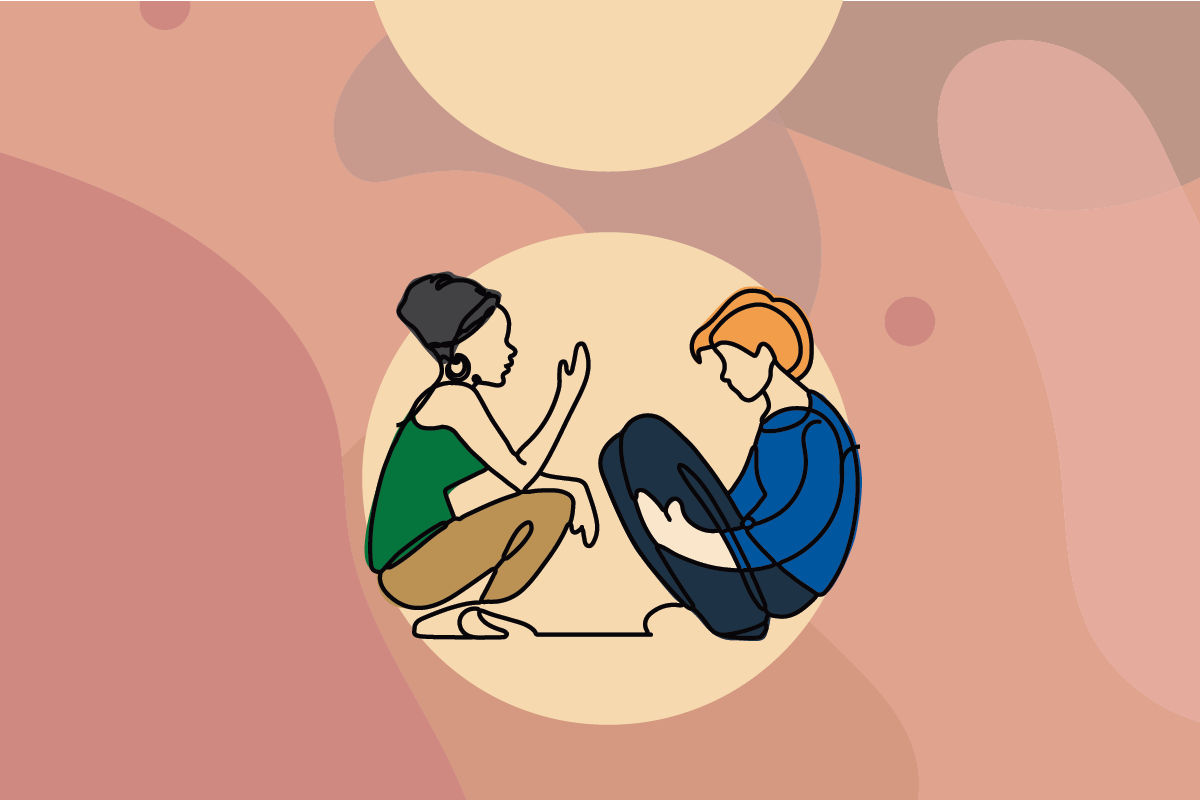Q&A with the trainer: Behaviours that challenge
Mar 2024
Written by Billy Black Glenys Bristow
One of our most frequent requests at the CETC is for more training on how to respond to the behaviours of young people in out-of-home care that caregivers can find unusual, extreme, and challenging to manage.
CETC Therapeutic Residential Care Specialist Dr Glenys Bristow has continued to answer these frequent requests through her virtual workshop, Shut off, sad, hurt, and angry: behaviours that challenge. This workshop is regularly run for residential workers and other therapeutic care providers seeking to enrich their trauma-informed approach to caring for young people who communicate through their behaviour.
With yet another workshop just around the corner, I asked Glenys about her passion for this topic and her key advice for understanding and responding to behaviours that challenge.

Good morning, Glenys! Let’s begin with asking, what does the term “behaviours that challenge” mean to you?
Behaviours that challenge are trauma-based behaviours. They are those strategies that a child or young person has relied on to survive and will use over and over in their daily lives, even when the abuse or violence is no longer present. A fundamental question to be posed in response to behaviours that challenge is: WHO is challenged by the behaviours.
And who is that? Who is challenged by behaviours that challenge?
The main reason this question is here is to highlight that all of us are challenged by different behaviours and recognising this is incredibly important. We all have different ‘triggers’ and it is important to understand these as part of a team as young people who have learnt to survive have also learnt to identify triggers in adults around them Whilst this isn’t personal it can certainly make building a trusting relationship more difficult.
What inspired you to commit so much focus on the topic of behaviours that challenge?
I love residential care! It’s a lifelong passion! Too many people have given up on these kids and they have been excluded from all other systems. Their behaviours are often seen as being caused by residential care, when in fact all other systems have let them down, or they wouldn’t be in Therapeutic Residential Care (TRC). They have demonstrated pain-based behaviours long before they were referred to us. It’s good to remember we can be a beacon of hope for kids growing more safely to adulthood. These behaviours are coping behaviours that challenge all of us differently. I have heaps of stories and share them in the training.
What are the key takeaways you hope participants will walk away with?
- That there is always, always a reason for a behaviour! It’s never “what have you done?”, but “what has happened to you?”
- Remember, you may not see the results of your hard work whilst the young people are with you. Think of it as “banking” – they will store away the things you have loved about them and said to them, and in the years to come, they will make sense. They bank our wisdom and withdraw it when required.
- Never give up!
How can residential workers apply the insights from your training and practice guide on behaviours that challenge to their work?
The training is designed to work through the content applying it to a young person or group of young people you are currently working with. After many years as a residential worker, I know I understand the culture, the amazing work they do, and the seemingly insurmountable challenges faced.

What resources would you recommend to workers to explore the topic further?
My 5 favourite resources that are covered in page markers and scribbles are:
- Responding to Behaviours that Challenge – Practice Guide (2022) by CETC
- The Brightness of Stars: Stories from Care Experienced Adults to Inspire Change (2022) by Lisa Cherry
- The Boy Who Was Raised as a Dog (2017) by Bruce Perry and Maia Szalavitz
- Deep Brain Learning: Evidence-Based Essentials in Education, Treatment, and Youth Development (2015) by Larry Brendtro and Martin Mitchell
- Rethinking Residential Child Care: Positive perspectives (2009) by Mark Smith
Why are they my favourite books? Because they are useful to working in residential care, you can apply them, and they are written by people who get it! They also show the long history of residential work trauma-informed practice which was first written in the 60s by people in our field.
Is there a question you wish people would ask about behaviours that challenge? How would you answer it?
Why do they challenge us so strongly? They need to know we are skilled, courageous, and strong enough to keep them safe.
If you are interested in registering for the upcoming virtual workshop Shut off, sad, hurt, and angry: Behaviours that challenge on 13 March. You can click here to find out more and reserve your spot.
For more information and resources, download our free practice tool to exploring the meaning of young people’s behaviour and supporting change, and check out our practice guide to understanding and responding to behaviours that challenge.

















































